The Jesuit Priest said that the planned two-phase convention is part of the Synodal process and gives African experts the opportunity to contribute “whatever insights or ideas or wisdom we think might help us to deepen not only our knowledge but also the understanding and practice of synodality.”
The ASI-initiated convention aims to have participants shed light on some of the questions that emerged during the October 2023 session of the Synod, and also provide a theological analysis of the key dynamics of the Synodal process in view of offering theological input from an authentically African perspective ahead of the 2-29 October 2024 session in Rome..
Participants in the convention are to develop and publish a volume on “Living Theology of Synodality: The Face of a Synodal Church” – from an African Perspective, as a complement to “A Pocket Companion to Synodality: Voices from Africa and Training Toolkit on Synodality.”
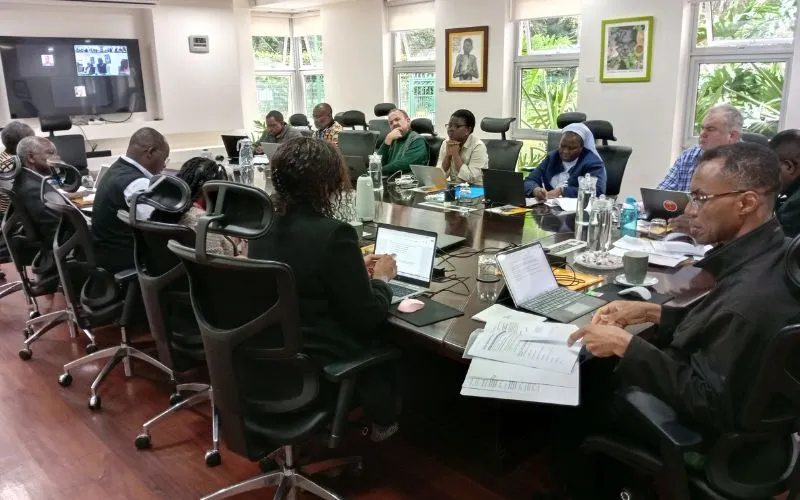 Credit:ACI Africa
Credit:ACI Africa
Some of the themes that participants in the convention are working on to be part of the volume include: A Spirituality of Synodality, Theological Foundations of Synodality, Charisms of Religious Life for a Synodal Church, Gift of Authority in a Synodal Church, Scriptural Foundations of a Synodal Church, Synodality in the Local Church, Ethics of Synodality, A Synodal Church of the Young and Young at Heart, Theological Foundations of Co-responsibility, Communication and Synodality, Teachers of Synodality: The Gift of Women in a Synodal Church and Synodality and its Discontent, among others.
(Story continues below)
Ahead of the June 20-21 convention, each participant submitted an initial draft of a working paper on an assigned theme.
In the June 21 interview with ACI Africa, Fr. Orobator said that the second phase of the convention has been scheduled for January 2025. By then, he explained, the second session of the Synod on Synodality would have been concluded.
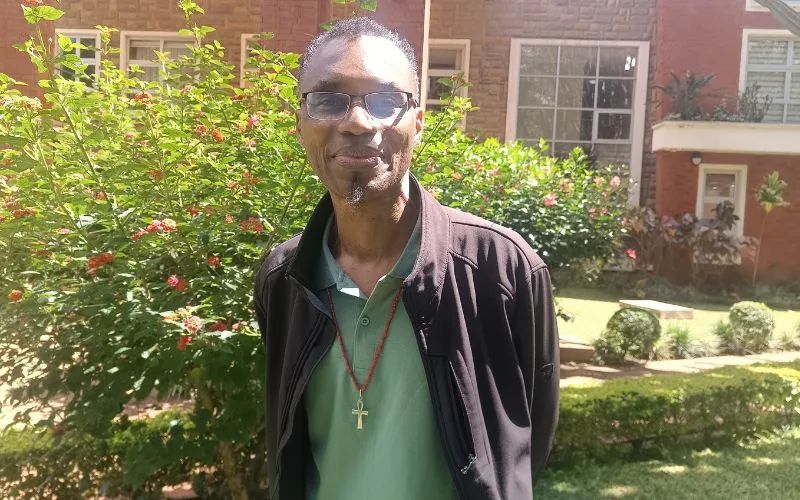 Credit: ACI Africa
Credit: ACI Africa
“The expectation is that everybody who has been part of this process will take the learnings, the outcomes, and the wisdom that comes out of the second session and use that to enrich whatever text or paper or presentation they are working on,” he said.
Insights from the June 20-21 convention, Fr. Orobator said, are to guide the participants in enriching “their own presentations for the next phase when we gather together.”
“This symposium is the idea that Africa is not a single story; there is no single African voice, and that Africa is a diversity of voices, of meaning, a diversity of personalities, a diversity of visions,” he said.
“Synodality allows us to hold all of this diversity in intention, in harmony, in balance,” Fr. Orobator further said.
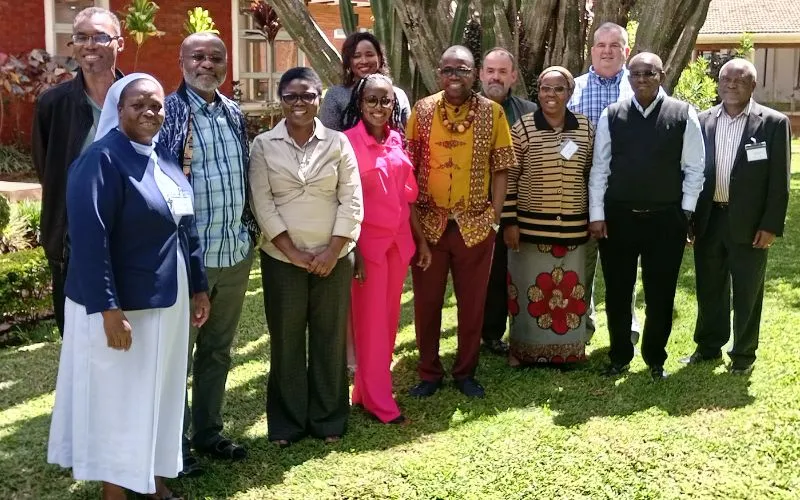 Credit: ACI Africa
Credit: ACI Africa
“It means that as Africans, as theologians, as social scientists, as philosophers, as pastoral agents, and workers, we have different perspectives, whether it's about thorny issues, contentious issues, like how authority is exercised in the church, or about culture, how culture can be formative but also be oppressive, or about young people and the role of lay women and men and cultures within the church and society that are oppressive of women,” he added.
Synodality, the Jesuit Priest continued, “allows us to come together around the same table and recognize the tension and differences, but strive towards consensus, towards understanding, and towards mutuality.”
“I think that's been the beauty of these two days. We are not afraid to recognize the tension, the challenging, and the difficult questions, but we want to approach them in a synodal manner, that is walking together respectfully, listening, dialoguing, and hopefully discerning what God is saying to the Church here and now,” Fr. Orobator told ACI Africa on June 21.
ACI Africa was founded in 2019. We provide free, up-to-the-minute news affecting the Catholic Church in Africa, giving particular emphasis to the words of the Holy Father and happenings of the Holy See, to any person with access to the internet. ACI Africa is proud to offer free access to its news items to Catholic dioceses, parishes, and websites, in order to increase awareness of the activities of the universal Church and to foster a sense of Catholic thought and culture in the life of every Catholic.
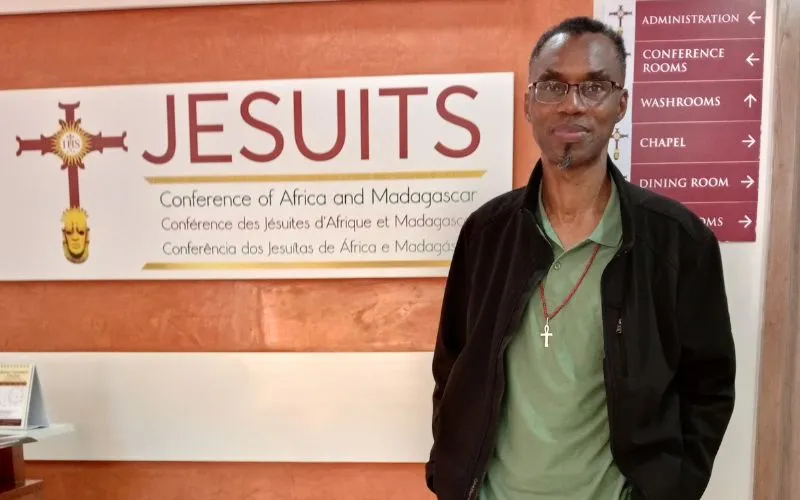 Fr. Agbonkhianmeghe Orobator. Credit: ACI Africa
Fr. Agbonkhianmeghe Orobator. Credit: ACI Africa


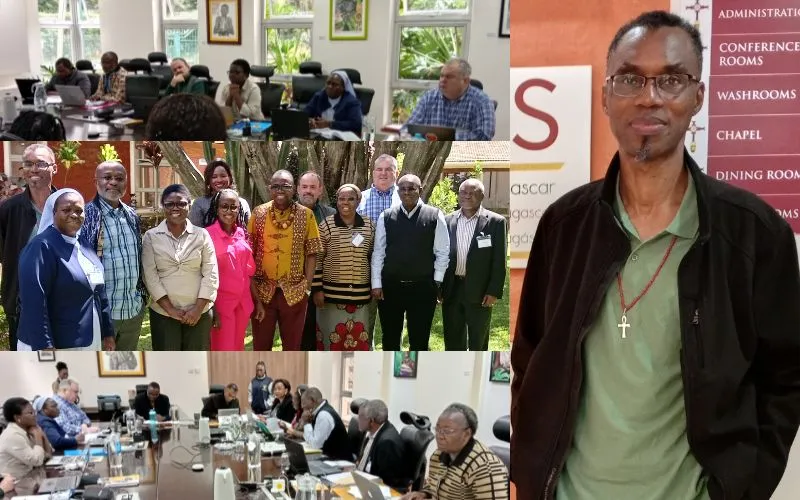
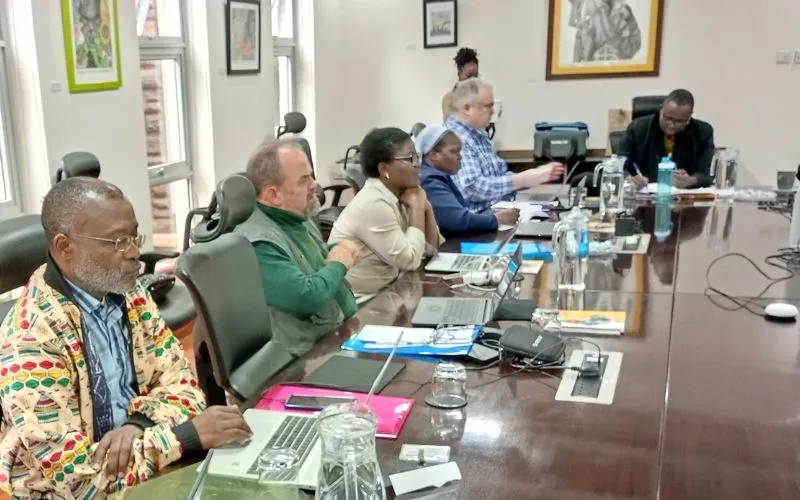 Credit: ACI Africa
Credit: ACI Africa
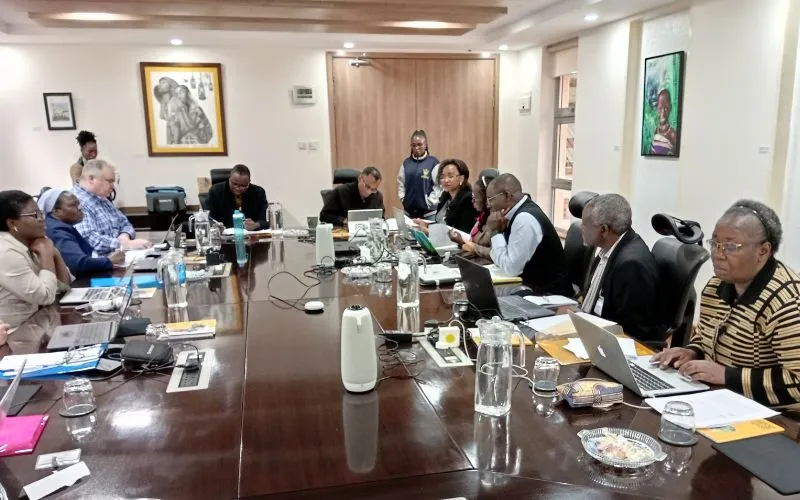 Credit: ACI Africa
Credit: ACI Africa 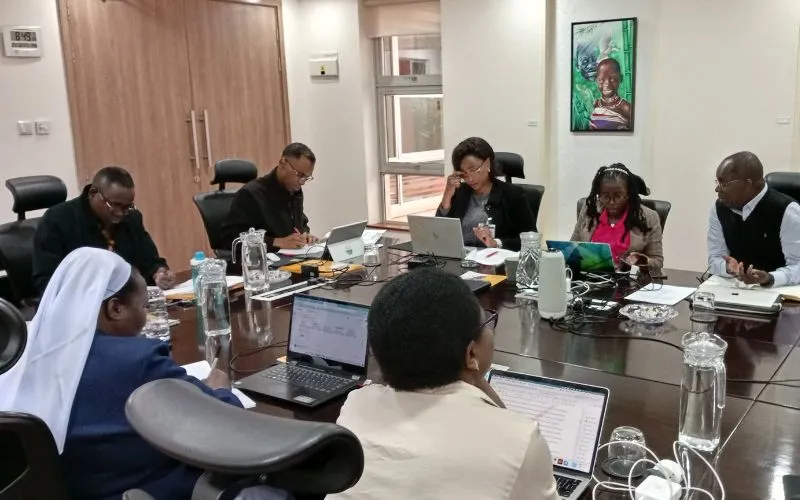 Credit: ACI Africa
Credit: ACI Africa  Credit:ACI Africa
Credit:ACI Africa Credit: ACI Africa
Credit: ACI Africa Credit: ACI Africa
Credit: ACI Africa


